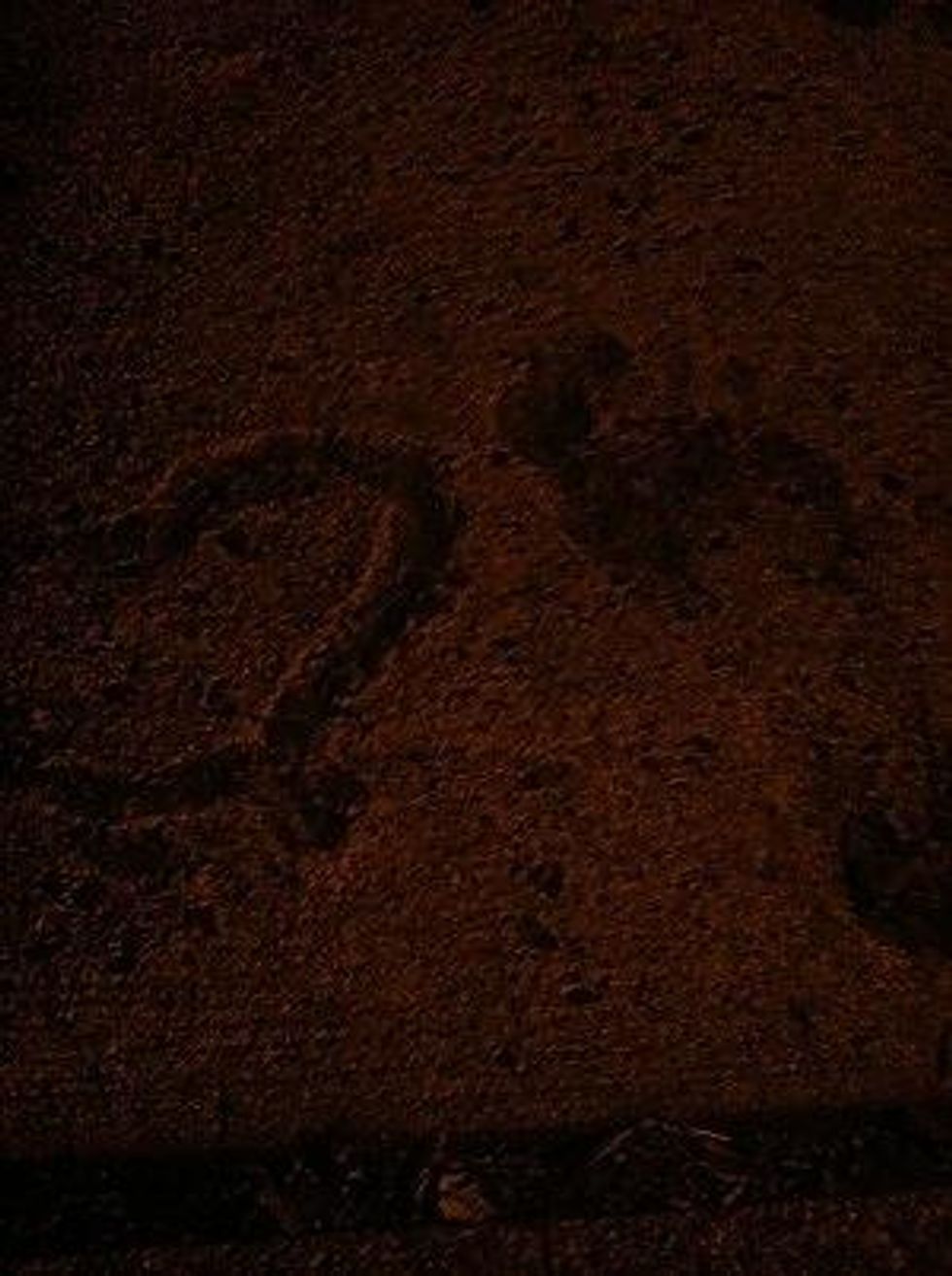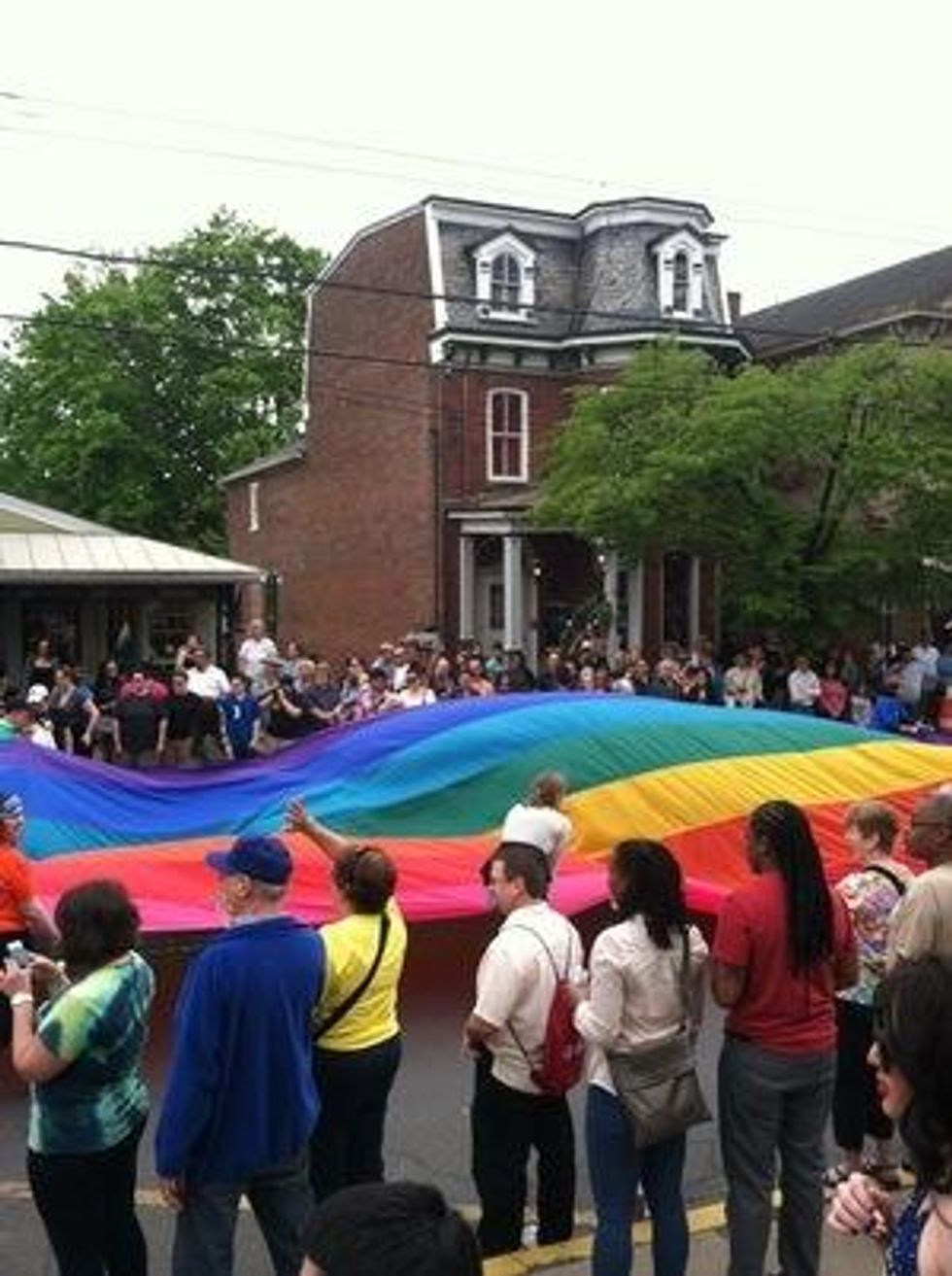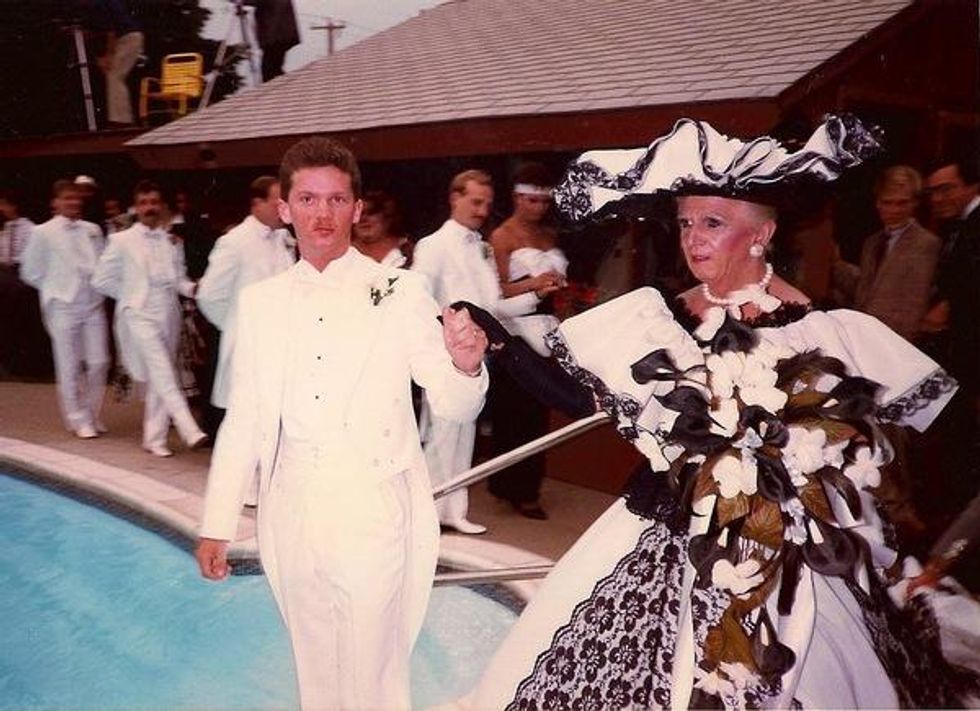Travel & Nightlife
The Ghost With The Blue, Blue Eyes

Legacies known and unwritten in New Hope, PA.
May 29 2013 1:12 PM EST
February 05 2015 9:27 PM EST
By continuing to use our site, you agree to our Private Policy and Terms of Use.

(Above, Joseph Cavellucci and his alter ego, Mother.)
Plenty of gays have passed through the small Pennsylvania town of New Hope, but there's been only one true Queen, Mother. Mother was the drag persona of Joseph "Josie" Cavellucci, a World War II veteran who first arrived in New Hope in 1949, three years after leaving the Army, and long after it became clear that his New York City-based biological family would never accept him. He found that acceptance in New Hope and for five decades, dressed to the nines day or night, on the street or in church, Mother ruled New Hope's roost. "I am the reigning man and woman," she said in 2000, shortly before her death at the age of 74.
Living mostly from her pension and from jobs as a waitress or hostess, Mother also supported her relatively lavish, or at least glitzy, existence by throwing "weddings." The parties became legendary, and townspeople gay and straight gladly paid for her hand. When it came time for Mother herself to be taken care of, New Hope was right there by her side, providing care fit for a woman who dedicated her life to the town and its inhabitants. Today, over a decade since her death, Mother is center stage once again at Retro-Scope, a crowd-sourced web archive of personal histories from New Hope and beyond.
SLIDESHOW: VINTAGE FUN IN NEW HOPE, PA
"Mother was the grand dame of New Hope society," says Retro-Scope founder Daniel Brooks, a New Yorker who first began visiting New Hope in 2000, just before Mother died, and who now owns a local bed & breakfast. "She was a symbol of the town itself."
Retro-Scope began after Brooks saw a deceased neighbors' belongings being tossed in the trash, headed for the dump. "I remember thinking, 'Those don't need to be there,'" Brooks said. "It felt indicative of what was happening to our history in New Hope. I was concerned it would go away forever." The LGBT community's experiences and memories, collective or otherwise, need be preserved. A legacy must be left.

A small borough of less than 3,000 people, New Hope sits about 50 miles north of Philadelphia and only a few steps west from Lambertville, New Jersey, just across over the Delaware River. First founded in 1790 for access to passing ferries, New Hope has two main streets, Main Street and Bridge Street. The latter is named for the bridge that connects it to Lambertville. Crowds gather there every summer Friday for a fireworks show put on by the two towns. It's a crowd pleaser for all except the ducks, who hurry to either states' shores once the booms begin.
The weekend of my first visit, Main Street was being prepped for the town's gay pride, an event Brooks started 10 years ago. "It's a fair for everybody, but run by gays," he said. New Hope Pride prides itself on cutting out "the exclusive-type environment seen at other prides," where straight people may feel less comfortable. The street is shut down, but that's just a precaution. No traffic exists because the entire town turned out to see drag queens sing, marching bands march, gay cops strut, and a local church preach its inclusive gospel.
A middle-aged caucasian gay couple sat on the curb looking for Waldo with their tweenage, African-American children. A teenage lesbian couple, one with a green mohawk and a "Legalize Gay" T-shirt, held hands in front of a diner boasting both the Tea Party's "Don't Tread on Me" flag and rainbow gay pride lights. A straight couple--looking very much the picture of Connecticut perfection--rode their bikes into town to enjoy the view. I felt as if I've stepped into the quintessential American small town.

Like so many colonial-era towns, past violence can be found under every cobblestone in New Hope, a fact of historical American life that lends itself to stories of restless spirits. The leader of our ghost tour, told us of revolutionary soldiers who, after being burned to death in a blast, were stored in the basement of the Logan Inn, which is still an operational hotel and restaurant. Those soldiers' spirits now allegedly snatch lighters and matches from wait staff unlucky enough to be sent downstairs. Another ghost in an upstairs room is reportedly that of a man who hanged himself. Slaughtered pigs reportedly squeal in the night elsewhere in town, and legend has it that spirits stalk the footpaths along the perfectly spooky canals that snake around town.
The most popular story, however, may be one that involves an unidentified, teenaged apparition with blond hair, startling blue eyes, brown bell-bottoms, and a knapsack. Numerous drivers over the years have said they've seen him and his blue eyes over and over again, around various curves on the same wooded stretch of Bucks County Highway. He's always alone. Even if you don't believe in ghosts, imagine what it would be like it that boy had a name, if that was someone's legacy, if that was your legacy, to be known as an urban legend, to be remembered as a hitchhiker forever flagging a ride.
The Bucks County Playhouse would probably be a pile of rubble if it weren't for Kevin and Sherri Daugherty. In early 2011, as the structure crumbled around its late 18th-century foundation and its previous drowned in debt, Kevin (an equity fund manager) and his wife, who owns a local boutique, ponied up $1.75 million of their own money to create a public-private partnership that saved the Playhouse. Over $3 million in renovations later (its new pulley fly system alone cost more than $100,000), and the Playhouse has been revived to and beyond its former glory. To celebrate the renovations, Bucks County Playhouse last year hosted another production of Barefoot in the Park.
This year, with all the finishing touches in place, they're putting up the classic musical Mame until June 9. Then, from June 13-23, they're debuting Mothers and Sons, Terrence McNally's new play about a woman grieving her son's AIDS-related death and, later, the playhouse will host Summer of '42, a coming-of-age tale that takes place just as Joseph "Mother" Cavellucci, then just 17 years old, was finding himself booted from his house and into the army. Mother Cavellucci had no idea that in seven years he would move to and find a new home in New Hope, where he could dress in drag without raising an eyebrow. On the contrary, Joseph's "Mother" persona made him a living legend.
Everyone in town turned out for Joseph "Mother" Cavellucci's funeral in 2000. And so did the U.S. Army. Mother's World War II service granted him the proper send off, including a 21-gun salute. It was part of his legacy, a legacy still being written.

Sexy MAGA: Viral post saying Republicans 'have two daddies now' gets a rise from the right